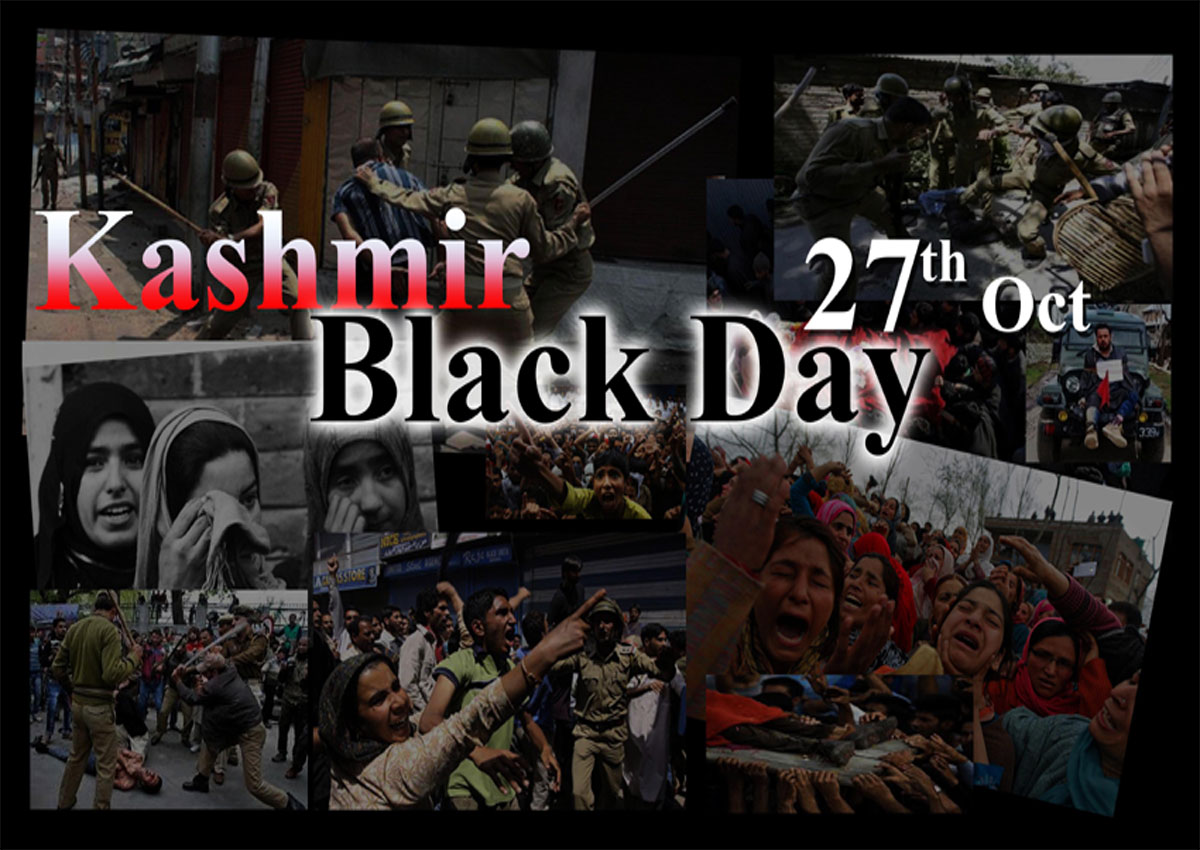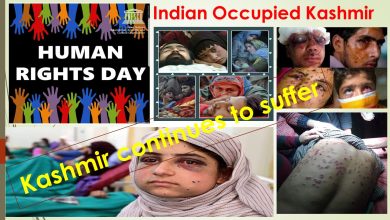
October 27, 1947, is remembered as a day of deep sorrow for the people of Kashmir. On this day, Indian military forces entered the region, triggering a conflict and occupation that remains unresolved till today. For Kashmiris, this was not a legitimate defense against an external threat, as India claims, but rather an invasion that has denied them their right to self-determination.
Looking back at the resolution of July 19, 1947, the Muslim Conference expressed the hopes of the majority Muslim population, which stood in anticipation that Maharaja Hari Singh would accede to Pakistan. This resolution reflected the aspirations of the people of Jammu and Kashmir, highlighting their cultural and religious ties to Pakistan. Unfortunately, Maharaja Hari Singh illegally chose to accede to India without the will of the Kashmiris. India justified its military intervention as a necessary act to suppress any resistance, laying the foundation for a protracted and bloody conflict. Later, India took the issue of Kashmir’s accession to the United Nations, claiming that the Maharaja’s decision to join India was legitimate. However, UN Resolution 47 proposed a plebiscite, allowing the people of Kashmir to determine their own future through a free and fair vote. This resolution for a plebiscite still stands unfulfilled after more than seven decades.
In the dark history of Kashmir, the Jammu Massacre is a significant event, during which around 250,000 Muslims were killed, with hundreds of thousands more displaced and forced to flee to Pakistan. Since then, lacs of people have been killed, maimed, blinded, tortured, or disappeared. Broadly, October 27 is seen as the starting point of the ongoing genocide against Kashmiris.
India’s political stance has undergone a significant transformation over the years. Once committed to UN resolutions and the possibility of a plebiscite, India now firmly claims Kashmir as an “integral part” of its territory. This shift is more than just a change in language; it marks a profound betrayal of the hopes of the Kashmiri people. Promised a voice in determining their own future, they have instead been left in a state of uncertainty, caught between competing claims and political maneuvers that show little regard for their desires.
Central to the identity and autonomy of Jammu and Kashmir was Article 370, which granted the region a unique form of self-governance, allowing it to maintain its own constitution and exercise independent decision-making powers. However, the revocation of Article 370 in August 2019 marked a significant shift in this balance, fully integrating Jammu and Kashmir into India’s legal and political framework. This decision faced widespread condemnation both domestically and internationally, as it drastically reduced the region’s autonomy and heightened concerns about potential demographic changes aimed at weakening the Muslim majority.
In the aftermath of this revocation, reports of human rights abuses, extrajudicial killings, and arbitrary detentions surged sharply, painting a bleak picture of life in Kashmir under intensified militarization. The legacy of Black Day and the events that followed serve as a stark reminder of the unresolved aspirations of the Kashmiri people and their ongoing struggle for justice and self-determination.
Since August 5, 931 civilians have been martyred by Indian occupation forces. Many Kashmiris have disappeared, and women have been kidnapped or shot dead for merely protesting against the occupation. Military operations and detentions have escalated, although state terrorism in IIOJK has long been rampant. Draconian censorship laws have tightened after the abrogation of Article 370, leading to the arrest of several journalists. Despite condemnations from the UN, EU, OIC, and other international bodies, they have failed to stop the ongoing terror inflicted by Indian forces on innocent Kashmiris.
October 27, 1947, is a day deeply ingrained in the memory of Kashmiris, marking the beginning of a conflict that has claimed countless lives, stripped away rights, and suppressed their identity. It is a day of mourning and reflection on broken promises and the ongoing need for justice. Kashmiris call for recognition, respect, and above all, peace. The global community must not remain passive but actively advocate for justice, human rights, and the right to self-determination for Kashmir.
Noor ul ain Dabeer Kazmi is a student of Peace and Conflict Studies at NDU and an intern at Kashmir Institute of International Relations.








